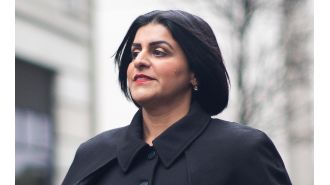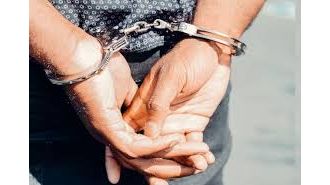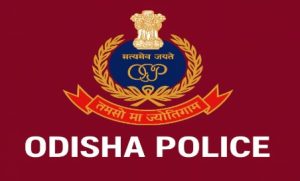Phase 6 of Lok Sabha polls had the lowest voter turnout of 61.22%, according to latest updates.
Voter turnout in the sixth phase of Lok Sabha elections in New Delhi was at 61.22%, the lowest among all phases. This was reported by the Election Commission's voter turnout app as of 11:55 pm on Saturday.

New Delhi: The sixth phase of the Lok Sabha polls saw a voter turnout of 61.22%, which is the lowest among all the phases so far. The Election Commission's voter turnout app reported that this percentage was recorded as of 11:55 pm on Saturday, with a significant number of voters still in line at some polling stations when the scheduled time for voting concluded. This phase covered 58 seats in eight states and Union territories, with a turnout of 64.4% in the same phase during the 2019 general election.
The fifth phase, held on May 20, had a turnout of 62.2%, while the fourth phase saw a turnout of 69.16%, which was 3.65 percentage points higher than the corresponding phase in the previous parliamentary election. The third phase recorded a voter turnout of 65.68%, slightly lower than the 68.4% turnout in the same phase during the 2019 election. The second phase saw a turnout of 66.71%, compared to 69.64% in the second phase of the 2019 polls.
In the first phase, a turnout of 66.14% was recorded, whereas in 2019, the turnout in the first phase was 69.43%. The final voter turnout will only be available after the results, once the counting of postal ballots has been completed and added to the total percentage. The day saw some incidents of violence, including an alleged assault on a BJP candidate, minor clashes, and protests in West Bengal.
There were also reports of EVM malfunctioning in certain areas, including Delhi. According to the figures updated at 10:30 pm by the Election Commission's voter turnout app, Jharkhand had a turnout of 63.30%, Uttar Pradesh 54.03%, Bihar 55.24%, Jammu and Kashmir 53.38%, Haryana 59.43%, Odisha 61.44%, and Delhi 56.12%. The Commission also reported that the Anantnag-Rajouri seat in Jammu and Kashmir had the highest turnout in 40 years.
With this phase, polling has been completed in 486 seats across 28 states and Union territories. The remaining 57 seats will go to polls in the seventh and final phase on June 1, with the results being announced on June 4. Given the sweltering heat in many parts of the country, arrangements were made at polling stations for cold water, coolers, fans, and tents.
Wheelchairs were also provided for the elderly voters. The Election Commission had directed officials to take necessary measures to manage the adverse impact of the hot weather. Over 11.13 crore voters, including 5.84 crore males, 5.29 crore females, and 5120 third gender individuals, were eligible to vote in this phase.
The Commission had deployed around 11.4 lakh polling officials at 1.14 lakh polling stations. Peoples Democratic Party chief Mehbooba Mufti, who is contesting from the Anantnag-Rajouri seat, staged a sit-in outside a police station, claiming that her party workers and polling agents were being detained. She also alleged that her outgoing calls were suspended.
However, the police clarified that those detained were overground workers, and the action was taken to ensure smooth elections. Mehbooba's daughter and PDP leader Iltija Mufti also alleged that the polling was deliberately slowed down at a booth in the Anantnag-Rajouri constituency, which was denied by the administration. In the national capital, President Droupadi Murmu, Union ministers S Jaishankar and Hardeep Singh Puri, Chief Minister Arvind Kejriwal, Delhi minister Atishi, and Congress leaders Sonia Gandhi and Rahul Gandhi were among those who cast their votes.
CPI leader Brinda Karat claimed that she had to wait for almost an hour to vote due to a drained battery in the EVM control unit at her polling booth. However, the District Election Officer stated that the battery was replaced within 15 minutes. In addition to all the seven seats in Delhi, polling was also held in 14 constituencies in Uttar Pradesh, all 10 seats in Haryana, eight seats each in Bihar and West Bengal, six seats in Odisha, four seats in Jharkhand, and one seat in Jammu and Kashmir.
Simultaneously, polling was also conducted for 42 assembly constituencies in Odisha and the Karnal assembly bypoll in Haryana. Prime Minister Narendra Modi, Chief Minister Kejriwal, and Congress president Mallikarjun Kharge urged voters to exercise their right to vote in large numbers. In Haryana, BJP's Karnal Lok Sabha seat candidate Manohar Lal Khattar and Chief Minister Nayab Singh Saini were among the first to cast their votes.
In West Bengal, voting took place in the tribal belt of Jangal Mahal, which sends eight representatives to Lok Sabha. The BJP won five seats in this region, while TMC bagged three in the 2019 polls. However, BJP's Jhargram candidate Pranat Tudu claimed that his convoy was attacked, leading to injuries to security personnel and himself.
Minor clashes also broke out between TMC and BJP supporters in the Ghatal constituency. In Uttar Pradesh, polling was held for 14 seats, while Jharkhand saw polling in four constituencies. In Bihar, 86 candidates contested for eight seats.
The Commission reported that 107 people were arrested or detained in the state for causing disruptions and attempting to hinder the voting process. Security forces also seized a large sum of cash and liquor in various locations within the eight seats. With the penultimate phase of the Lok Sabha elections underway, political leaders and parties urged voters to come out and exercise their right to vote.
The Election Commission also made provisions to make voting easier, such as providing free pick-and-drop facilities for urban voters in Ranchi. Despite some incidents of violence and disruptions, the day saw a relatively smooth polling process.










